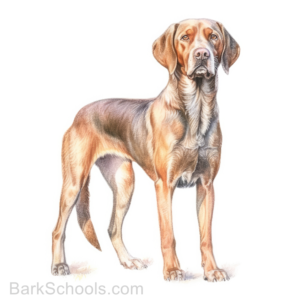Have you ever wondered what sets the Harrier breed apart from the rest? In this article, you’ll discover the key traits of the Harrier breed that make them such unique and beloved companions
Harrier Traits & Characteristics
When it comes to the Harrier breed, there are several distinguishing traits that set them apart. From their friendly nature to their energetic personality, Harriers are known for a variety of characteristics that make them excellent family pets. Let’s delve into the key traits that define the Harrier breed.
Interaction with Family, Children, and Other Dogs
Harriers are known for their friendly and sociable nature, making them excellent family pets. They are affectionate and loyal, forming strong bonds with their human family members. When it comes to children, Harriers are gentle and patient, making them great companions for kids of all ages. Additionally, Harriers typically get along well with other dogs, especially when properly socialized from a young age.

Physical Characteristics
- Shedding: Harriers have a moderate shedding level and require regular grooming to keep their coat in top condition.
- Drooling: Harriers are not known for excessive drooling, making them a relatively clean breed.
- Fur Coat: Harriers have a short, dense coat that is easy to maintain. Their coat can come in a variety of colors, including black and tan, lemon and white, and red and white.
Social Behavior
When it comes to social behavior, Harriers are known for their friendly and outgoing nature. They are typically open to strangers and enjoy meeting new people. Harriers are playful and energetic, making them great companions for active families. While they are not generally known for being particularly protective, they are alert and will alert their owners to any potential dangers. Harriers are also highly adaptable and can thrive in a variety of living environments.
Personality
- Trainability Level: Harriers are intelligent and eager to please, making them relatively easy to train with positive reinforcement methods.
- Energy Level: Harriers are energetic and require regular exercise to keep them happy and healthy.
- Barking Level: Harriers are known for their distinctive baying, which can be quite loud at times.
- Mental Stimulation Needs: Harriers are intelligent dogs that require mental stimulation to prevent boredom and destructive behaviors.
Trainability
When it comes to training, Harriers are generally eager to learn and respond well to positive reinforcement methods. They are intelligent dogs that enjoy mental challenges, making them a joy to train. However, like any breed, consistency and patience are key when it comes to training a Harrier.
Common Health Issues
Like all breeds, Harriers are prone to certain health issues that potential owners should be aware of. Some common health issues that may affect Harriers include hip dysplasia, ear infections, and obesity. Regular vet check-ups and a healthy diet can help keep Harriers in top condition throughout their lives.
Facts You Should Know About Harriers
- Suitability for Non-Experienced Owners: Harriers can be a good choice for first-time owners as long as they are willing to put in the time and effort to properly train and socialize their dog.
- Difficulty of Training: Harriers are intelligent and eager to please, making them relatively easy to train with positive reinforcement methods.
- Awareness of Health Issues: Owners should be aware of potential health issues that may affect Harriers and take proactive steps to prevent them.
- Activity Level: Harriers are a high-energy breed that requires regular exercise to stay happy and healthy.
- Walking Requirements: Harriers should be walked for at least 30-60 minutes a day to meet their exercise needs.
- Destructive Behavior: Harriers may engage in destructive behaviors if left alone for extended periods, so proper training and mental stimulation are essential.
- Grooming Needs: Harriers have a short, dense coat that requires regular grooming to keep it in top condition.
- Vocalization: Harriers are known for their distinctive baying, which can be quite loud at times.
- Friendliness with New People: Harriers are typically friendly and outgoing with new people, making them great companions for social families.
- Compatibility with Other Dogs: Harriers generally get along well with other dogs, especially when properly socialized from a young age.
- Space Requirements: Harriers are medium-sized dogs that require a moderate amount of space to move around comfortably.
Harrier Nutrition and Feeding
When it comes to nutrition, Harriers require a balanced diet that meets their specific energy and nutritional needs. High-quality dog food that is appropriate for their age, size, and activity level is recommended. It’s important to consult with a veterinarian to determine the best feeding plan for your Harrier based on their individual needs.
History and Origins of the Harrier Breed
The Harrier breed has a long and storied history that dates back to medieval England. Originally bred as scent hounds for hunting hares, Harriers are a versatile breed that excels at tracking and chasing down game. Their name is derived from the Old French word “harier,” which means to hunt or chase. Today, Harriers are beloved for their friendly nature and energetic personality, making them wonderful companions for active families.
In conclusion, the Harrier breed is known for its friendly nature, energetic personality, and strong bonds with its human family. Whether you’re looking for a playful companion for your children or a loyal watchdog to alert you to potential dangers, the Harrier breed has something to offer everyone. With their intelligence, trainability, and adaptability, Harriers make wonderful additions to a variety of families. If you’re considering adding a Harrier to your family, be prepared to provide plenty of exercise, mental stimulation, and love to this lively and affectionate breed.
